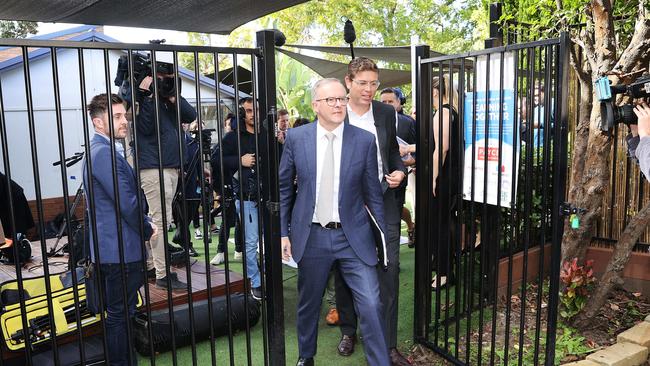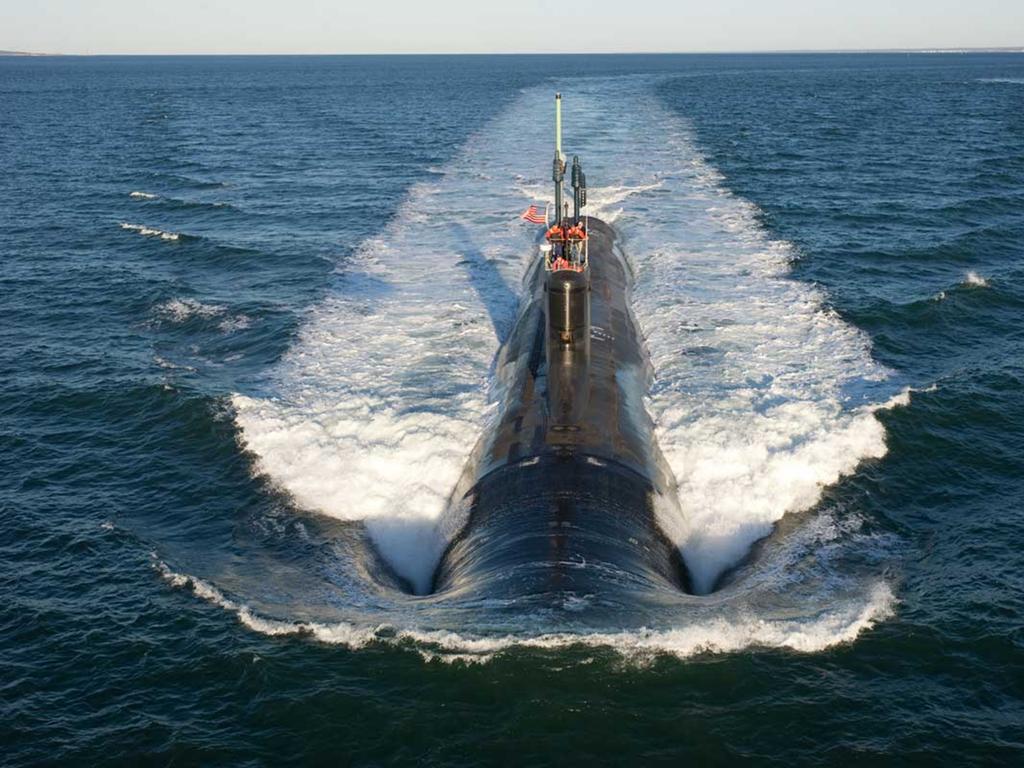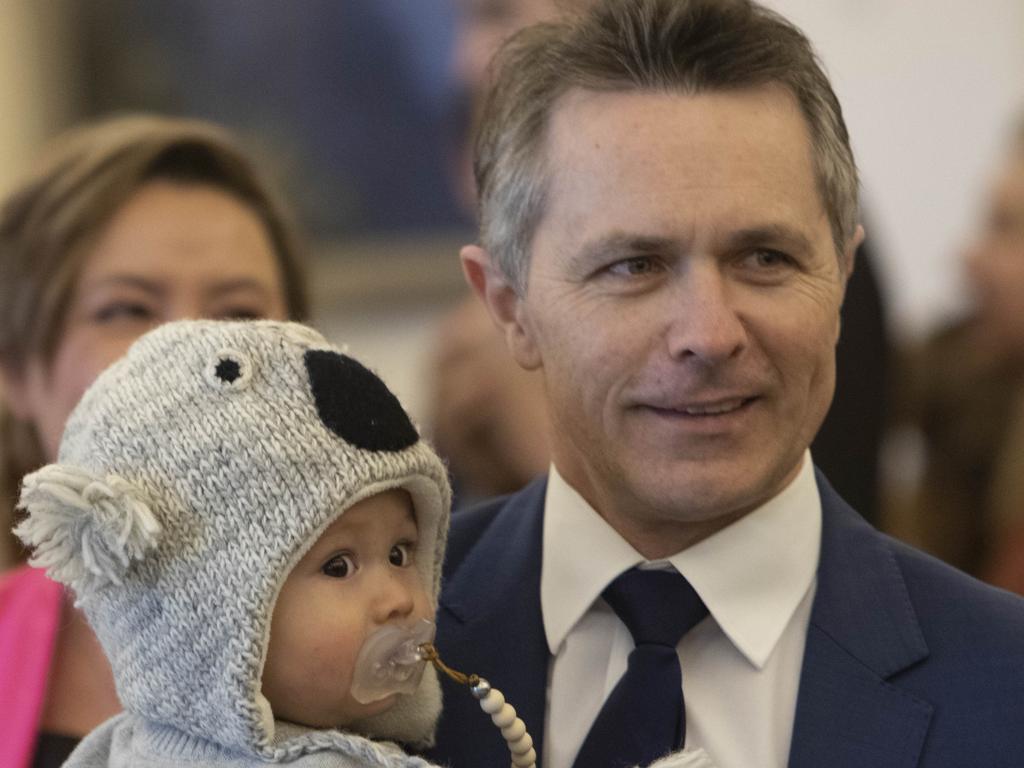Luxury politics has no place on ALP’s agenda
It takes mammoth chutzpah to advocate a policy that requires poor and struggling Australians to subsidise the childcare costs of the rich.

Middle-class welfare is bad enough when the country can afford it, as it arguably could in the Howard era. We are now seeing a new level of policy self-indulgence when we can no longer afford it. Call it luxury politics – expensive policies loved by the rich and by those immune to economic downturns but that will be paid for by those who can least afford them.
As interest rates, global uncertainty and the cost of living rise, many Australians will come to rue the profligacy of policies designed in more certain and affluent times.
A prime example of luxury politics is the $5.4bn childcare policy promised by the Albanese government, due to start in July next year. As economic risks grow, this policy will introduce a level of middle-class welfare that should gobsmack even Howard, Nelson and co.
It will not only significantly lift the percentages of childcare costs the government (aka taxpayers) will pay for, but it also will lift the family income cap for families that will be entitled to the subsidy from the previously shameful level of $400,000 to the positively sickening level of $530,000.
While the maximum subsidy rate of 90 per cent applies to families earning up to $80,000, a sliding scale will continue to offer subsidies to families earning up to $530,000.
Yes, that’s right. Anyone who pays tax will be contributing to the childcare costs of families earning more than a half-million a year.

The hard-pressed aged-care workers, nurses and teachers we heard so much about in the election will be setting aside a few dollars each week to give to doctors, lawyers and the like to help them pay their childcare costs. Whether you are single or childless, gay or straight, rich or poor, you will be helping to subsidise the childcare costs of the wealthy parents in the electorates of Wentworth, Brisbane and Kooyong and beyond.
Whether there has ever been a time the average Australian could afford this is doubtful, but it is unquestionably a luxury the ordinary worker cannot afford today.
It says much about the debased condition of our welfare state that not only did this escape almost unnoticed during the election campaign, but that as a so-called woman’s issue it seemed immune from criticism.
It appears that privileged women not only don’t feel ashamed to be taking money from the poor to pay childcare costs they could easily pay themselves but regard it, hilariously, as a down payment on gender equality.
This sense of entitlement, and what caused it, deserves close scrutiny, but let us first look at some of the alleged justifications for this reverse Robin Hood mentality wrapped up in Labor’s childcare policy.
First, we’re assured that this is a productivity issue. The costs of childcare are so high that workers, especially women, are effectively locked out of the workforce because the costs of care consume the after-tax benefits of work.
This argument certainly has merit at lower levels of income. That’s why carefully targeted and means-tested childcare subsidies can be justified. Targeted appropriately, this kind of subsidy can indeed be a means of social mobility and a tool to help people help themselves.
But as a family’s income goes up and the costs of childcare as a proportion of that family’s income go down, this kind of subsidy becomes less and less defensible.
My objection here is to middle-class welfare, not welfare per se. At a family income of a half-million a year, it is obscene for women to whine that they can’t afford to go to work because of childcare costs and so demand that taxpayers earning far less should subsidise their career choices. Spare me the guff about gender equality. Let’s focus on what’s fair.
The next argument treats childcare subsidies as some kind of human right, like universal medical care, irrespective of your financial position. We hear it packaged up as universal childcare, with Labor signalling its aim ultimately to apply the 90 per cent subsidies to all families, regardless of income. Universal childcare attaches to everyone equally because you’re human, or at least a parent.
Not even those drafting the ALP’s childcare policy really believe this. If this argument had any merit, it would follow there should be no caps, no means testing and an equal payment for everyone.
This argument means the uber-wealthy are entitled to welfare just like anyone else. It is preposterous in good economic times. It is plain nuts right now.
More to the point, it is palpably unfair to force Australians on lower incomes to contribute to the childcare bills of those people who will barely feel any pain from rising petrol prices, energy bills that are set to jump up to 18 per cent, increased mortgage repayments, and other cost-of-living pressures.
The ALP policy does at least have caps and, mercifully, the current plan fades out completely at family incomes of $530,000, so even the ALP realises, at least for now, that a childcare subsidy is not an unqualified right but a matter of where you draw the income line.
If ever there were a benefit that had some claim to universality, the Age Pension would be it. If you pay tax all your life, you should get a pension. But the pension is, of course, rigorously means-tested. According to government figures, as of March last year, only 62 per cent of the over-65 cohort receive a pension and, of those, 32 per cent receive only a partial pension.
So how have we become so addicted to policies of such manifest luxury? Why are we not querying them? Sadly, some of the worst examples of this kind of new luxury politics are justified as gender equity issues. Call the most indulgent policy a woman’s issue and it becomes sacrosanct.
Beyond reproach, or even analysis. I have previously noted how women have played men for fools – find a Male Champion of Change and you have found a woolly thinker so easily duped by women that they wouldn’t dream of criticising whatever plan women put forward.
There is an inescapable air of entitlement about women’s claims to childcare subsidies and many similar policies.
Women who have grown accustomed to demanding 50 per cent of the glamorous jobs in occupations where candidate pools are rarely going to be more than 25 per cent female are not used to pushback. It takes mammoth chutzpah to advocate a policy that requires poor and struggling Australians to subsidise the childcare costs of the rich.
Yet, as economic conditions worsen and the cost-of-living crisis deepens for the average Australian family, a day of reckoning will come for luxury politics.







Middle-class welfare has always had, and deserved, a bad name. It is not the preserve of any one political party. John Howard’s government was justifiably criticised for doling it out. And who could forget Brendan Nelson’s attack on the Rudd government when it sought to means test the $5000 baby bonus introduced by the Howard government in 2004? “Every mother loves her baby. Every baby is valued, and Mr Rudd should value all babies equally,” Nelson pleaded.